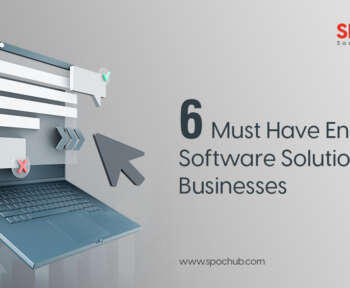Whether you’re a small business owner or senior management in a B2B or B2C business, you’re always looking to close every lead or contract. Additionally, you want your workforce to perform to standards. You will be perplexed every time your agents blame your legacy system for their inability to offer a rich customer experience or your sales team consistently fails to close leads or deals that you worked so hard to secure.
When you start looking for alternatives, you’ll see that every one of your rivals utilizes a CRM system to streamline operations and foster and develop client ties.
CRM system is used to unite teams and silos, digitize products, and expedite communication. Additionally, as the digital transition has grown, CRMs have demonstrated tremendous promise for enhancing every aspect of a contemporary workplace or corporation. Let us understand in detail what is a CRM system and what are the benefits of CRM software.
What is a CRM System?
You interact with other businesses as a business. Teams may be working remotely as well. The main goal of a customer relationship management (CRM) system is to manage, monitor, and organize such interactions so that you may better understand your customers.
A CRM management system keeps track of and stores the data and interactions that current and potential customers have with your brand (whether on social media, your website or through email marketing campaigns), giving you crucial customer interest data you can use to deliver highly personalized customer service.
What are the benefits of a CRM System?
In this digital day & age, there is an unlimited amount of data around us, which we can scour through to find business insights. While the active data sources in the world at present are uncountable, most of it is generated directly from consumer devices and their interaction with digital technologies. And in the world of digital marketing, this fountain of data is what powers up marketing agencies, advertisement agencies and many more sub-sectors.
The most relevant data for digital marketing is customer and lead data generated on the web. However, even this subset of data requires a system that is structured enough to store and analyze client data based on kind, expenditure, buying patterns, time of use, and a wide range of other factors. Working with raw data would be incredibly challenging, time-consuming, and least productive without such a method. Here, the customer relationship management system (CRM) enters the picture and takes care of the problem admirably. Here are the many benefits a CRM system offers.

1. Consolidate internal data silos and boost output
All of the data and content about your prospects (contacts, data, records, metrics, papers, or notes) and business are kept in one location or centralized database by a CRM management system. Additionally, it streamlines and arranges this data for simple retrieval and quick decision-making. This frees your team members from tedious data input and unification activities and improves their ability to close more sales.
2. Manage your consumer interactions rather than switching between tools
You will often communicate with a prospect or customer over the phone, via email, or on social media if you want to engage with them. A CRM management system can be used to manage all of this data and interaction. Therefore, you are not switching between different tools while delivering drip campaigns, following up with prospects, or sending resources to prospects. All of your conversations get easier as a result, and customer relations also improve.
3. Identify leads that are most likely to become customers
Depending on how your website visitors interact with your product, modern CRMs can record and track their behaviour and even award them points. Using this data, you can distinguish between warm and cold leads and nurture the proper prospects who are most likely to make a purchase from you. Additionally, you can utilize this information to guide your marketing initiatives.
4. Track the progress of deals in the pipeline
In order to hit your sales quotas and targets, it’s critical to track how your leads progress through the pipeline. You can simply follow a prospect’s purchasing journey or the activity of your leads or customers since a CRM management system keeps track of crucial customer communication and interactions. You can figure out where your leads are coming from and where they are dropping off the pipeline using that information. You can also spot successful patterns and utilize that information to guide your business decisions.
5. Improve productivity by automating routine tasks
Routine chores can take up a lot of an employee’s time, like collecting client information or delivering drip email campaigns to your subscribers. As a CRM management system automatically gathers client information, organizes it, updates it, and aggregates information inside the system, it may assist you with these fundamental responsibilities. Your representatives can then concentrate more on selling and fostering relationships with customers.
6. Track sales metrics and course-correct as needed
All the information about your prospects and customers is gathered and provided for easy analysis in CRM dashboards or reporting features. Your team members can utilize this data to track goals, and sales quotas, check progress and even review their performance. You may also identify where and why leads are dwindling in your sales pipeline, as well as plug any breaches.
7. Avoid duplication of efforts and manual tasks
Calls, meetings, contacts, and emails with prospects must be recorded, and customer information must be updated when clients’ needs change. All of this is automatically completed for you by a CRM each time a team member interacts with a customer. A CRM system is also so sophisticated that it will detect any effort to duplicate records and make sure that no duplicate entries are added to the database.
Make your business more efficient. Start using a CRM System

With the rise of digital customer interaction, remote working, and hybrid workspaces, C-level technology decision-makers have an opportunity to transform and automate work processes, while small business owners and sales managers can build their businesses using CRM tools. In this dynamic corporate climate, a CRM system ensures secure, effective, and flexible teamwork and collaboration with your clients.
Utilize a CRM system to simplify your company’s operations. When your team completes jobs swiftly and efficiently, your customers will be thrilled with your brand’s effectiveness in meeting their needs.




